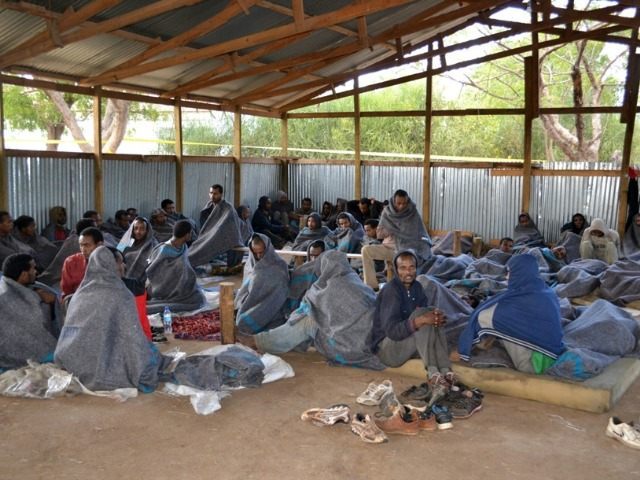Tanzania Threatens to Deport Ethiopian Migrants

Getty Images
Border security is becoming a big issue everywhere, including Tanzania, which finds itself overwhelmed by Ethiopians fleeing their own drought-ravaged country.
Some have described the drought as the worst in 50 years, so severe that 10 percent of the population cannot feed itself, and humanitarian groups are asking the international community to declare a “code red” situation for children.
The Thomson Reuters Foundation notes that Tanzania has long served as a human-smuggling route from Ethiopia and Somalia to (literally) greener pastures in South Africa and Europe. A growing number of migrants are stalling out in Tanzania, often after smugglers abandon them, absconding with the $1,000 to $2,000 fee paid for transit. Smuggler safe houses in Tanzania have been found packed with abandoned migrants.
“There are too many foreigners who live in our country illegally, we will not hesitate to arrest and deport them,” Tanzania’s Home Affairs Minister, Charles Kitwanga, told the Thomson Reuters Foundation on Monday.
The BBC reported last week on the arrest of 83 Ethiopian migrants found in the back of a truck heading for the Tanzania-Malawi border. According to the local police chief, the migrants were weak from dehydration and starvation, in such poor condition that “if we had delayed in finding them, they would have suffocated and lost their lives.”
Chief Peter Kakamba told the BBC patrols would be increased to find migrants, and arrest Tanzanians who have been assisting them. There have been complaints of corrupt officials taking advantage of the migrant crisis by taking bribes, and stealing the property of deported migrants.
The Ethiopian government has also been cracking down on human smugglers. “Smugglers are luring the young and old and then dumping them in the deserts or even killing them if they can’t afford the money required to complete the journey,” the mayor of one Ethiopian town told the BBC in October. Execution has been considered as a penalty for human smugglers.

No comments:
Post a Comment